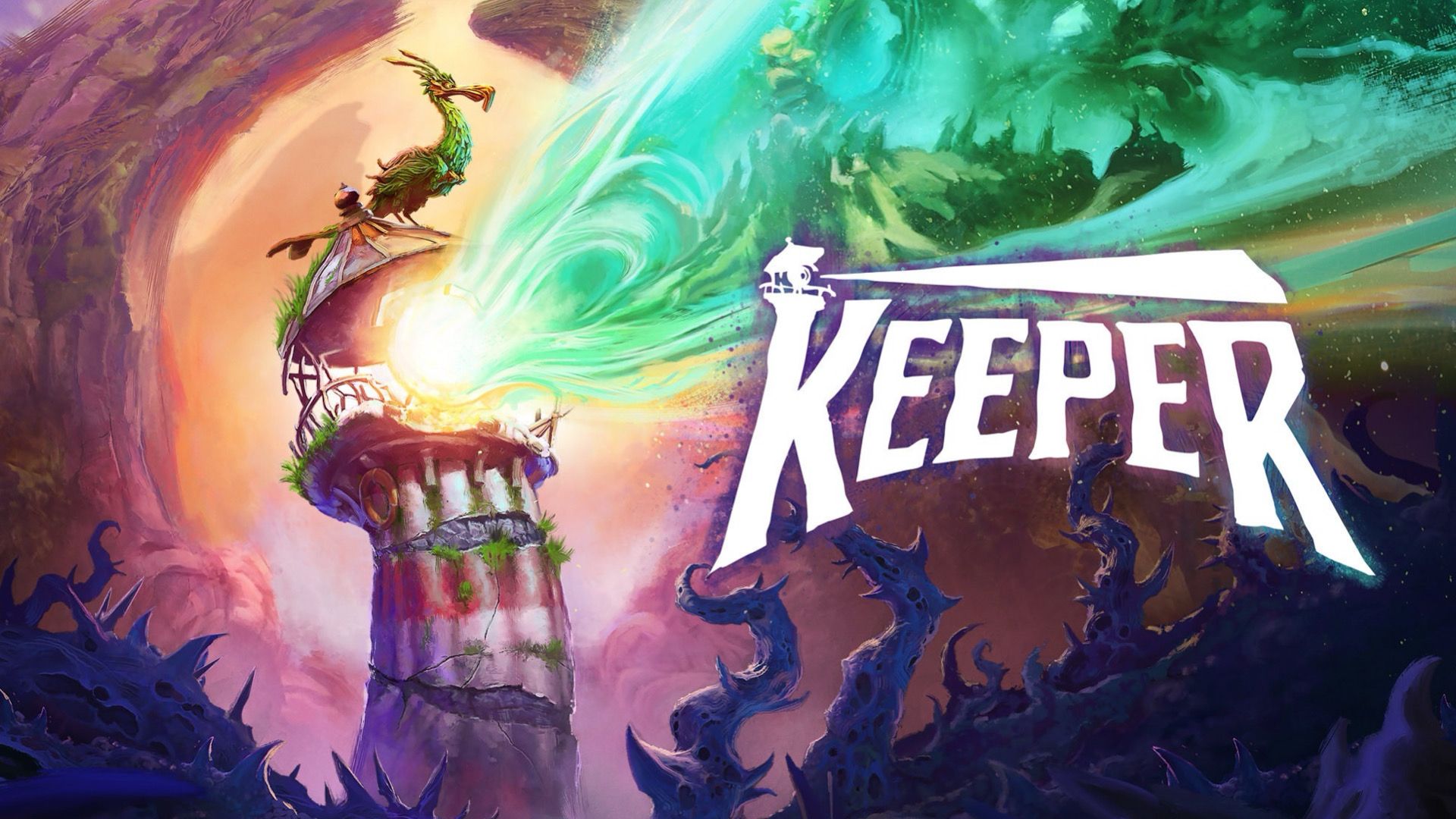
I really enjoy short, artistic video games – they’re some of my favorite experiences right now. Games like Journey are perfect examples, and I also particularly love Inside, Sword of the Sea, The Midnight Walk, and Gris.
If you’re familiar with these games, you’ll understand the feeling they create. They aren’t necessarily traditional video games, but they offer a powerful experience—a real journey, if you let them. These games are best played all at once, allowing you to fully connect with the emotions they evoke without stopping.
Double Fine’s new game, Keeper, fits right in with the growing trend of artistic, story-focused adventures. These games aren’t for everyone, but if you connect with this style, you’ll really enjoy them. Play a game like Keeper at the perfect time, and it could easily become one of your all-time favorites.
Despite a few flaws we’ll cover shortly, I’m really glad I played Keeper. It’s a bit slow to get going, but those who persevere will find it to be one of the most unique and mind-bending games I’ve experienced in a long time. Let’s dive in.
A Painterly World Of Wonder
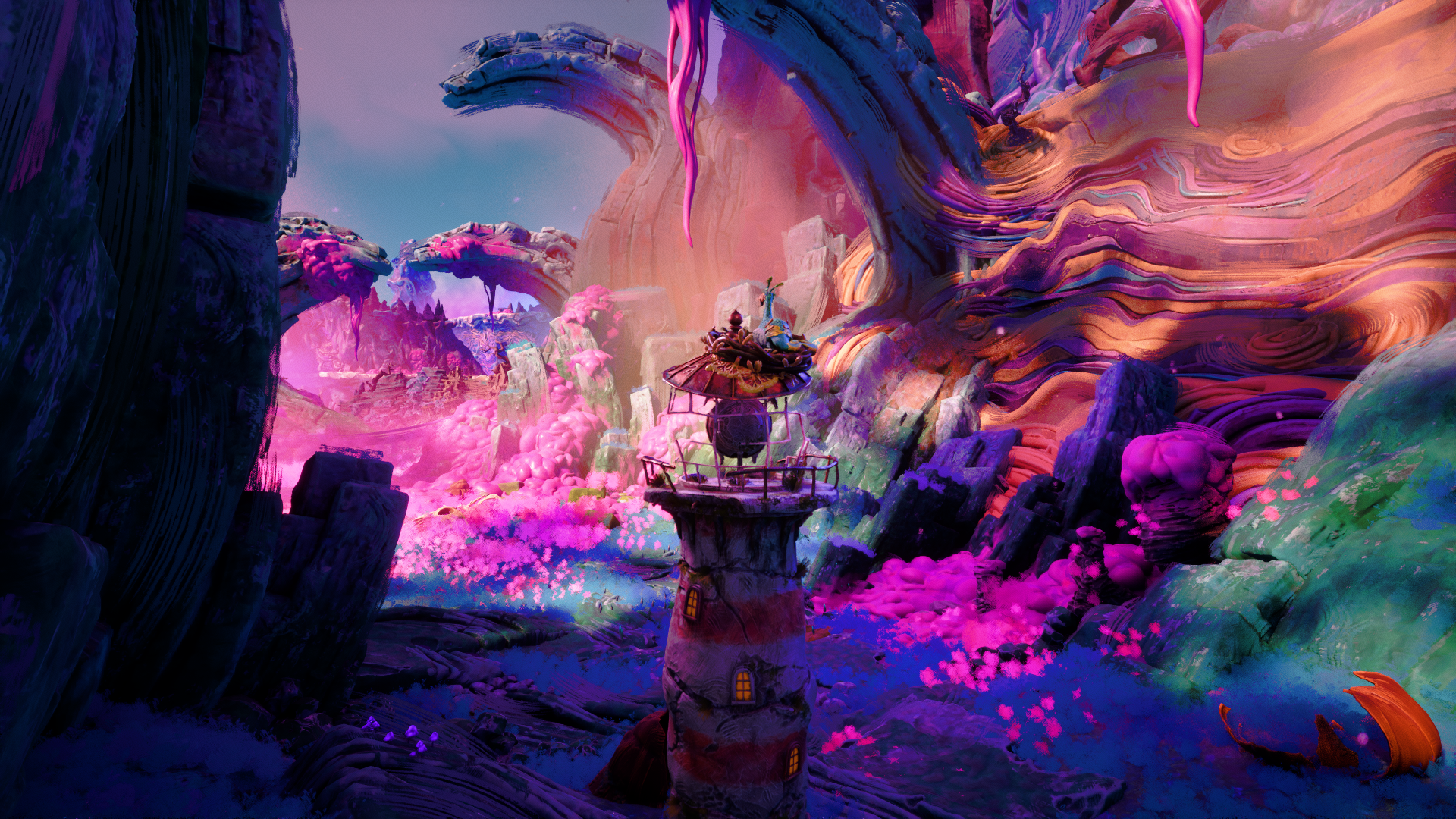
Keeper’s art style is heavily influenced by surrealist artists like Salvador Dali, Dr. Seuss, and Tim Burton, creating a consistently striking and unique visual experience throughout the game.
…a world that I’d love to step foot in and experience for myself.
I’ve played a lot of beautiful games, but Keeper really blew me away with its visuals. It’s not just that it *looks* good, but the art style is so unique – almost like a painting come to life. You can really feel the love and care that went into making this game, and it makes the whole experience so much more special.
Every area of the game feels vibrant and full of life, with small creatures, charming robot villages, and enormous, whale-like beings. It all comes together to create a world that feels reminiscent of Pandora from Avatar, and it’s incredibly immersive – I really want to be able to explore it firsthand.
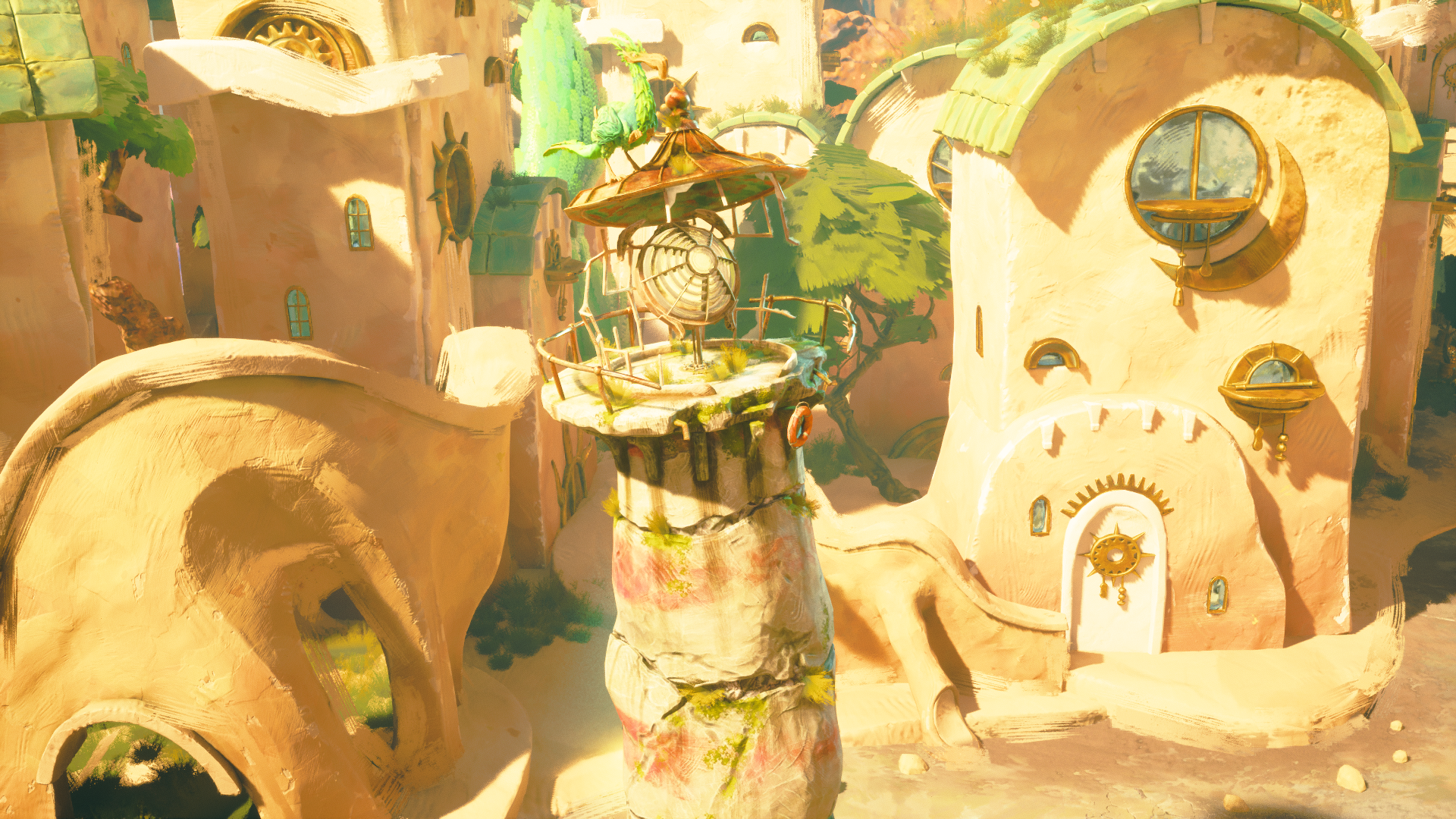
The stunning visuals are perfectly matched by a fantastic soundtrack that’s a unique blend of psychedelic, industrial, and atmospheric sounds. It often brings to mind the powerful post-rock music of 65daysofstatic, which really enhanced the experience of exploring the vast and imaginative universe of No Man’s Sky, and immediately immerses you in this game’s world.
Keeper clearly had a lot of effort put into its visuals and overall presentation, and it really pays off. If you’re someone who enjoys a game based on its atmosphere and style, you’ll find plenty to love here. In fact, I can’t think of many games coming out in 2025 with a stronger artistic vision.
Lore Building In A Wordless Land
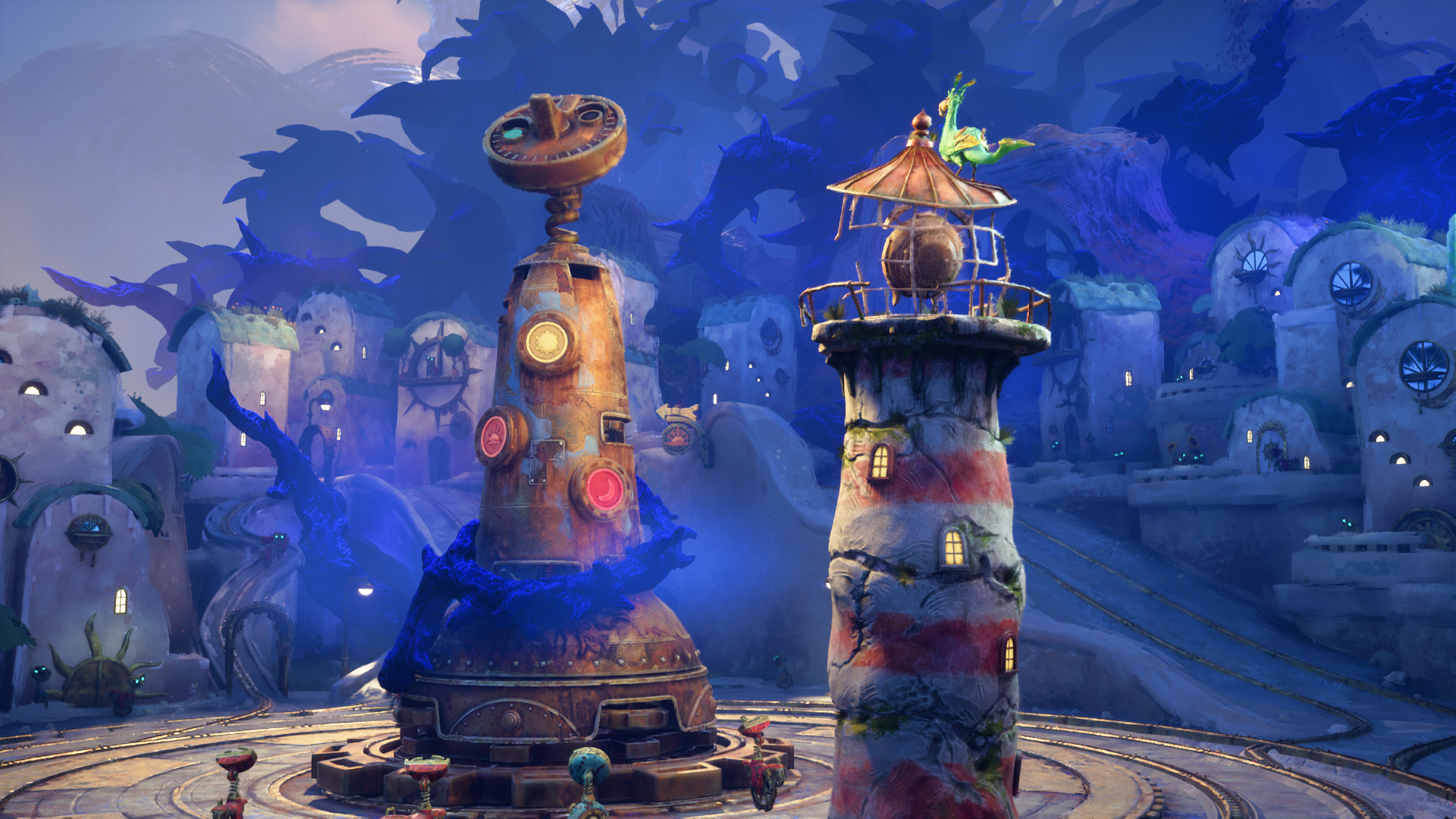
Keeper is a game told without dialogue. You play as a lighthouse that awakens and its companion, a unique bird named Twig, and uncover the story by exploring the environment and observing brief cutscenes. Despite the lack of spoken words, Keeper still delivers a compelling and meaningful narrative.
Truly rewarding and worthwhile by the end.
The game has a rich backstory hidden throughout the world, with optional structures and statues you can rebuild. Rebuilding these unlocks Xbox achievements and reveals interesting details if you bother to read the descriptions. I especially appreciate that the game lets players piece things together themselves, and Keeper did that really well.
The game begins with a familiar objective – reaching the summit – but quickly becomes surprisingly complex. Overcoming all the challenges felt incredibly satisfying, and I was left speechless, just staring at the credits as they finished rolling.
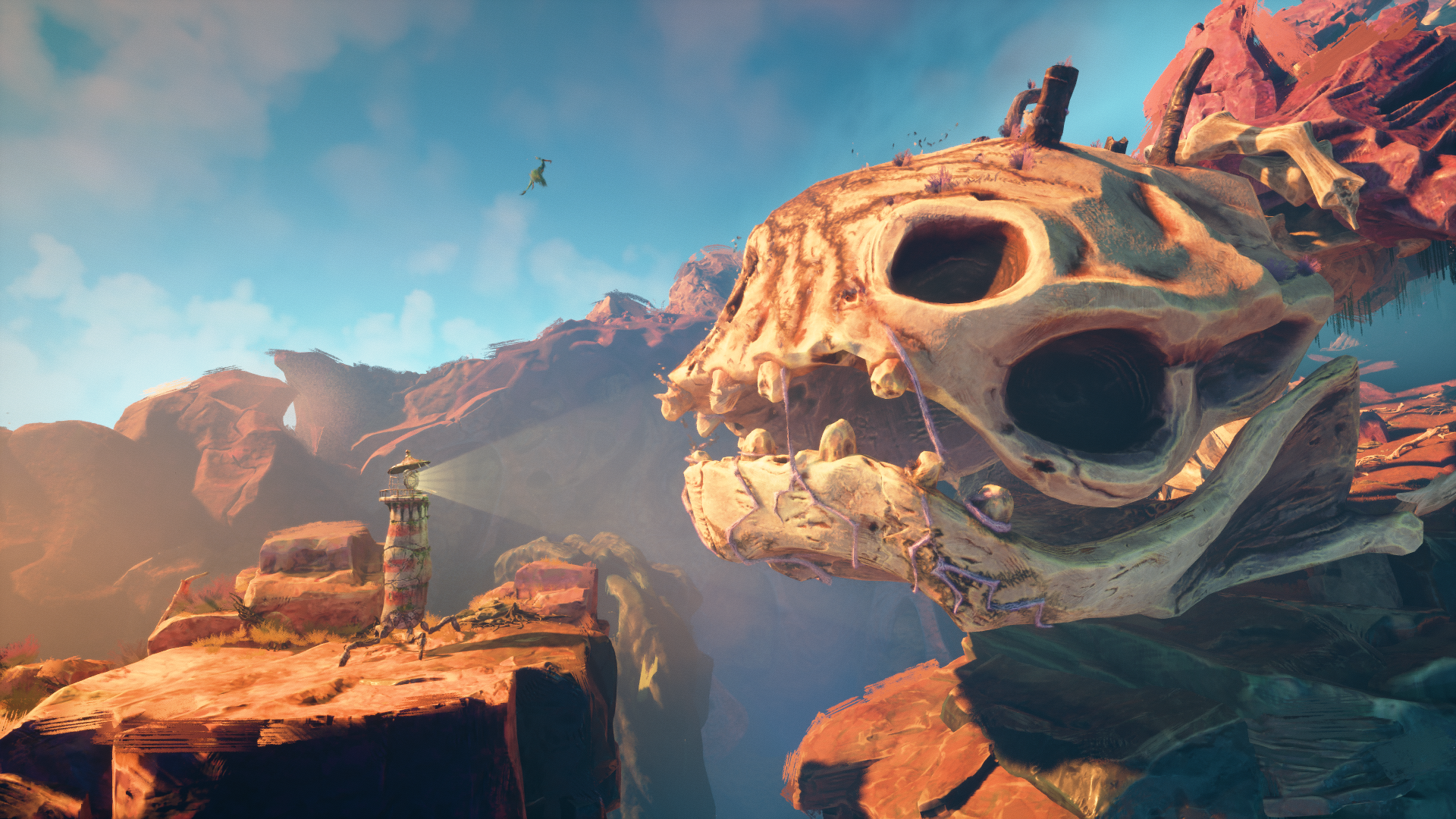
It doesn’t start out as a crazy story. Your friend, a bird named Twig, unexpectedly lands on your lighthouse while running from a dangerous enemy called The Wither. The Wither is causing the surrounding land to become overrun with harmful plants and disease, slowly taking control of everything.
While the characters are interesting, the story itself feels fairly typical at first, and I didn’t feel a strong emotional connection for most of it. It really grabbed me towards the end with some unexpected plot twists, but be patient – it might take a while for the story to fully resonate with you. Stick with it, though!
By the end, this story really explores powerful ideas like friendship, loneliness, determination, fear, and adapting to change—and there’s even more to discover if you think about it. Everyone will take something different away from it, but if you enjoy looking deeper for personal meaning, then Keeper is a great choice.
A Slow Burn With Insane Payoff
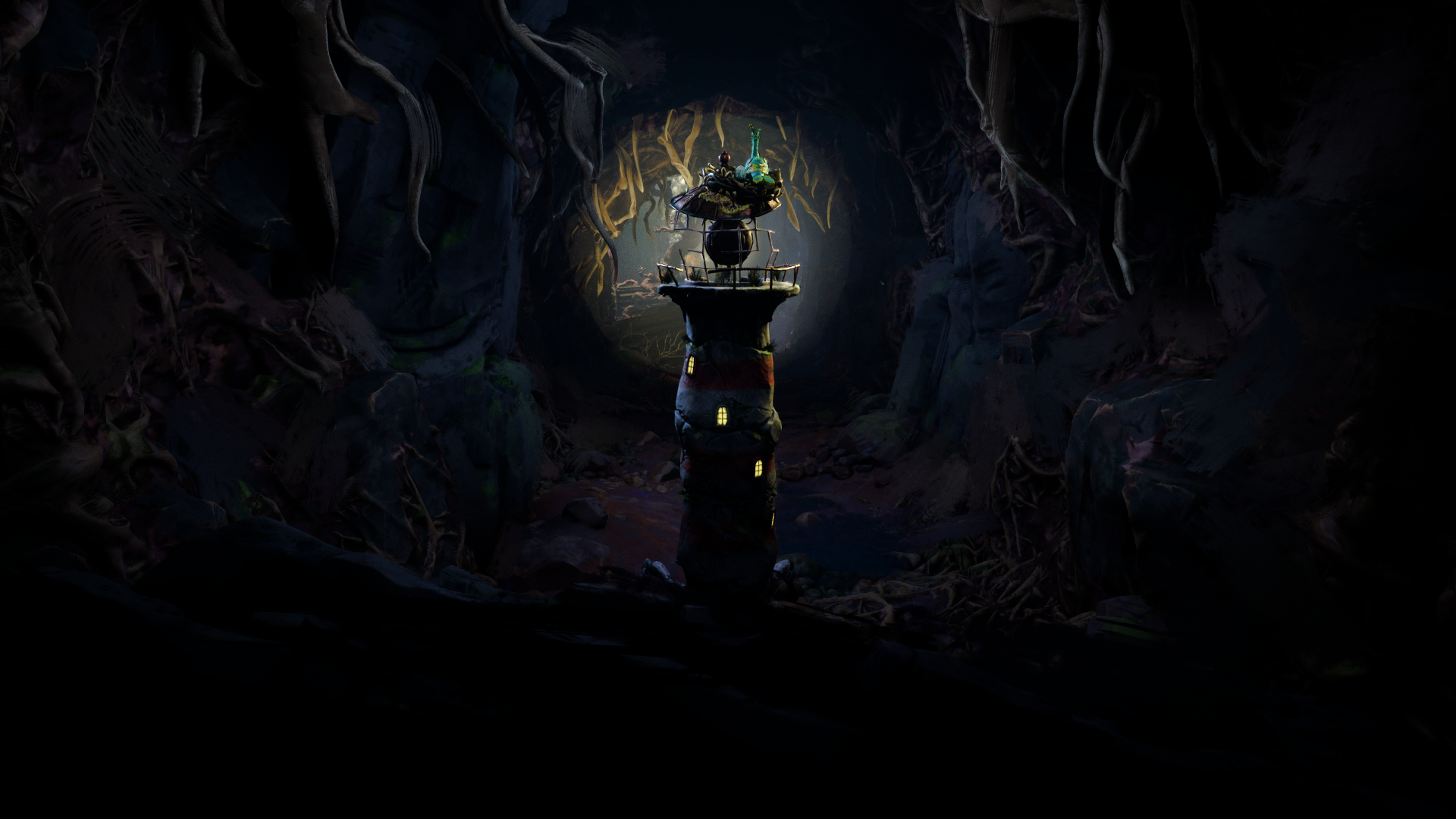
Keeper builds its story gradually, and this approach carries over to the gameplay, which might not appeal to everyone. The game lasts around four or five hours, and for a good portion of that time, you’ll mostly be watching things happen rather than actively playing. While it’s beautiful to look at and listen to, a lot of the game plays *itself*.
It kind of feels like a Disney World boat ride for huge chunks.
About halfway through playing, I jotted down “style over substance” because I found myself mostly just holding the joystick to guide the slow-moving lighthouse around obstacles. Then I’d quickly solve simple puzzles or interact with just one object to continue, and it felt like the visuals were prioritized over meaningful gameplay.
The game lets you control Twig to manipulate machines like levers and gears, and you can use your lighthouse beam to grow or transform objects, opening up new paths. While these ideas are creative, they don’t come together in a way that feels satisfying or engaging.
As a big fan of puzzle games, I was a little disappointed with the first part of Keeper. A lot of the puzzles felt *too* easy – things like just moving a lever along a clear path or lining up a few icons. I’m all for games being accessible, but for a long stretch, Keeper felt incredibly simple. Honestly, it was like being on a slow-moving boat ride at Disney World – beautiful to look at and with a great atmosphere, but you’re mostly just along for the ride and not really challenged.
Keeper maintains a certain feel for a good portion of the game, but that eventually changes. The story throws curveballs, constantly shifting and evolving, ultimately leading to a third act that is genuinely breathtaking – easily one of the most surprising, imaginative, and visually stunning I’ve experienced in years. I won’t reveal any details, because the twists deserve to be experienced firsthand.
Keeper faces a challenge: some players might initially find it slow or basic and give up before discovering how truly amazing it becomes. I’m a huge fan of how the game evolves, but it’s difficult to explain that without revealing key surprises. I’m struggling to describe it in a way that doesn’t spoil the experience.
One of the most shocking, creative, psychedelic, and simply cool third acts I’ve seen in years.
I know it’s hard to believe, but trust me on this one. Keeper starts out pretty basic, and it takes a while to really get going. I personally loved how the game slowly built up, though I admit the beginning could be more engaging to keep players hooked. Still, please push through the early parts, even if you’re not sure it’s worth it. It absolutely pays off, and the experience becomes truly special.
Some Quirks In The Quirkiness
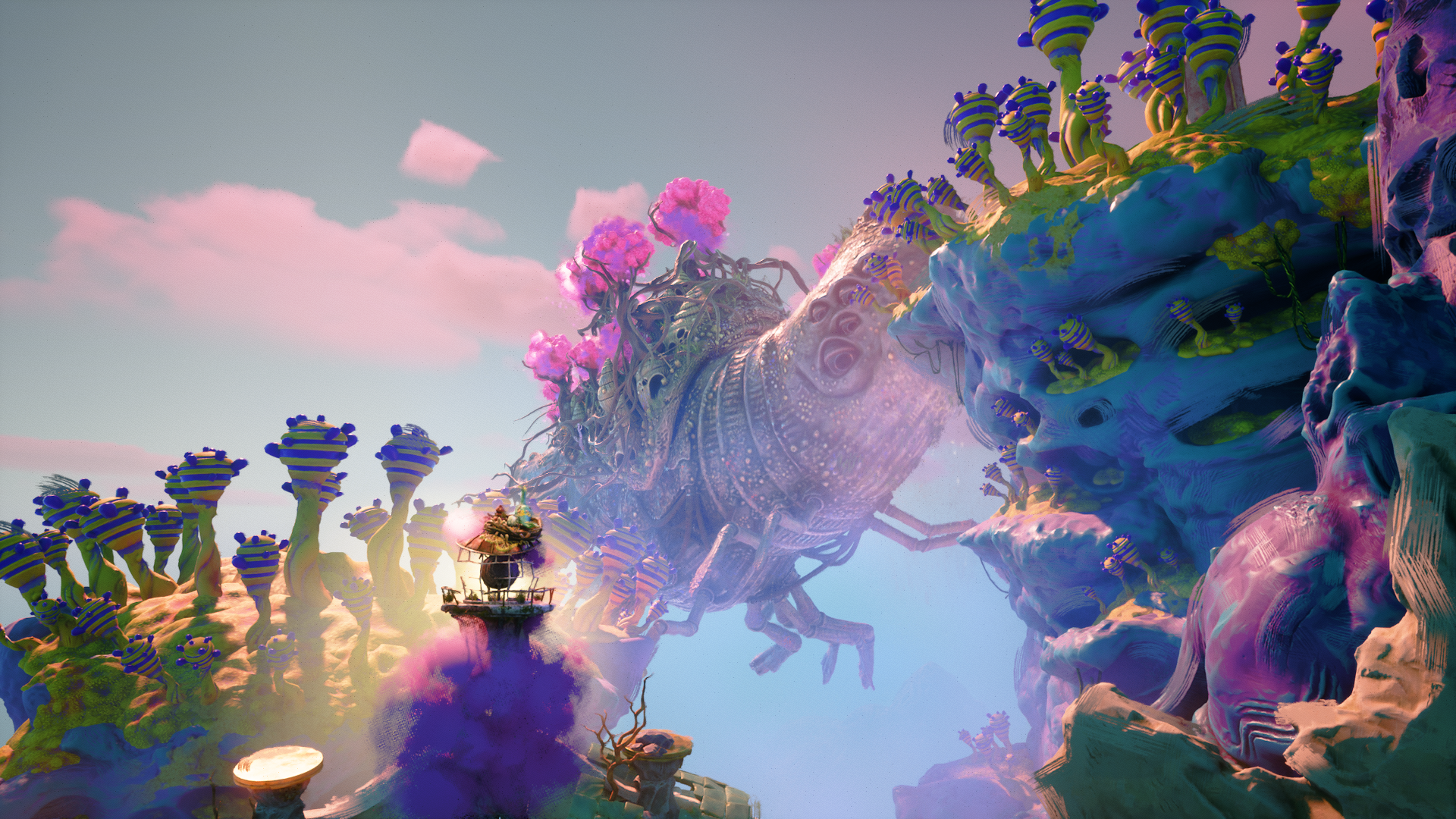
While I found the ending of Keeper to be really beautiful and satisfying, the game isn’t perfect throughout. It uses a fixed camera angle that you can’t control, and while this works wonderfully for about half the game – making it more accessible and letting the art really shine – it also presents some unusual design choices.
During simpler, story-focused sections, the game plays well. But when you’re in larger areas meant to be explored, not being able to control the camera becomes frustrating.
Sometimes, I needed to carefully scan the environment to plan my next move or search for items to collect. However, the camera often wouldn’t turn the way I needed it to, forcing me to move forward without being able to see properly until it finally rotated. This could be frustrating.
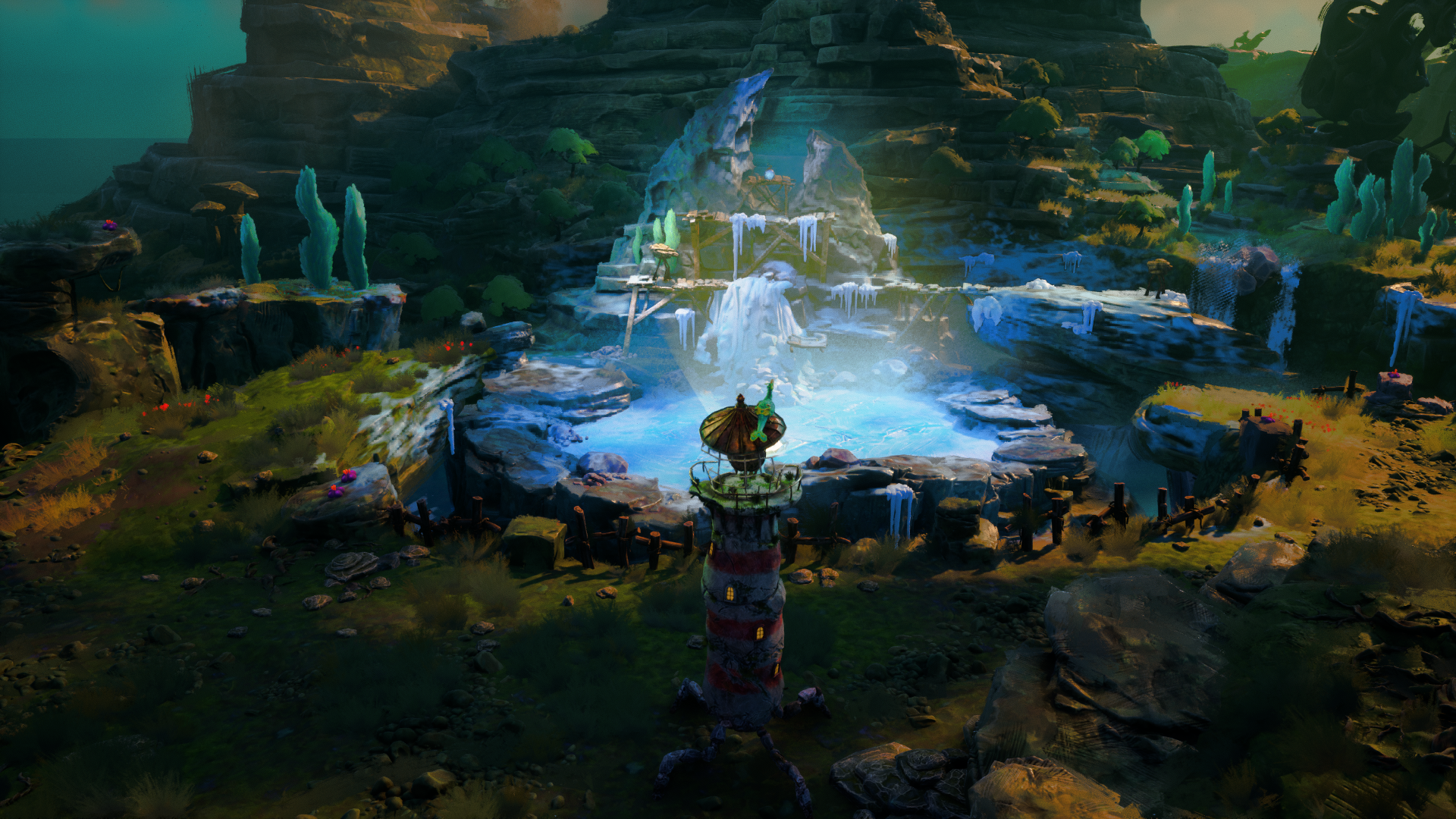
The controls are simple to understand, but the camera, which frequently shifts position, can be frustrating. A key part of the game involves shining a light on specific objects to make things happen, and I often struggled to aim correctly with the camera’s changing angles, making it hard to find what I needed to interact with.
While these issues aren’t major and the game generally runs smoothly, there are times when the limited control can be a little frustrating and cause some unexpected behavior. It’s not a frequent problem, but it’s worth noting.
I experienced some occasional performance slowdowns while playing on my PC, but I think that’s likely due to my computer not being powerful enough for this game, which seems to require a lot of resources. I’d recommend waiting for Digital Foundry’s full performance analysis to get a better understanding of whether these issues are common for most players.
Overall, I thought the game played well, and any minor issues were quickly forgotten as I became completely engrossed in the amazing story.
Closing Comments:
Keeper starts slowly, but builds to a fantastic and unexpected finale – one of the best in recent games. It often feels less like a traditional game and more like an immersive experience, making it a journey you won’t regret. It’s best to go in knowing as little as possible, as the game has a lot of hidden depth. While the puzzles aren’t challenging and there are occasional technical issues with the camera, controls, and performance, the game ultimately delivers a truly amazing experience for those who persevere.
Read More
- Poppy Playtime Chapter 5: Engineering Workshop Locker Keypad Code Guide
- Jujutsu Kaisen Modulo Chapter 23 Preview: Yuji And Maru End Cursed Spirits
- God Of War: Sons Of Sparta – Interactive Map
- Poppy Playtime 5: Battery Locations & Locker Code for Huggy Escape Room
- Who Is the Information Broker in The Sims 4?
- 8 One Piece Characters Who Deserved Better Endings
- Pressure Hand Locker Code in Poppy Playtime: Chapter 5
- Poppy Playtime Chapter 5: Emoji Keypad Code in Conditioning
- Why Aave is Making Waves with $1B in Tokenized Assets – You Won’t Believe This!
- How to Unlock & Visit Town Square in Cookie Run: Kingdom
2025-10-17 18:12